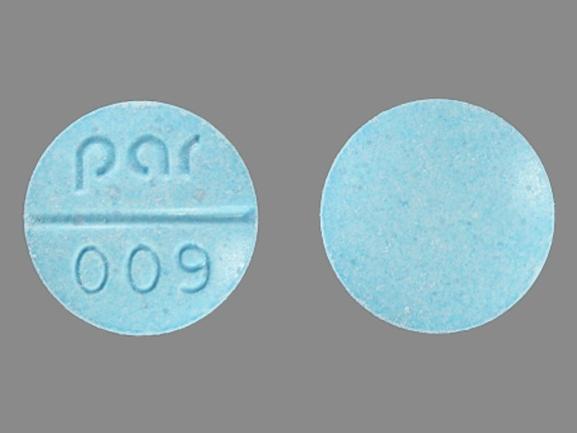Isosorbide Dinitrate Dosage
Medically reviewed by Drugs.com. Last updated on Jul 17, 2025.
Applies to the following strengths: 40 mg; 5 mg; 2.5 mg; 10 mg; 20 mg; 30 mg
Usual Adult Dose for:
Additional dosage information:
Usual Adult Dose for Angina Pectoris Prophylaxis
SUBLINGUAL:
2.5 to 5 mg sublingually 15 minutes prior to activity likely to cause an anginal episode
Comments:
- No dosing regimen of this drug should be expected to provide more than 12 hours of antianginal efficacy per day; a nitrate-free interval of at least 14 hours is recommended to minimize tolerance.
Use: Prevention and treatment of angina pectoris due to coronary artery disease; not the drug of choice for aborting an acute anginal episode due to slower onset of action than sublingual nitroglycerin.
IMMEDIATE RELEASE:
Initial dose: 5 to 20 mg orally 2 or 3 times a day
Maintenance dose: 10 to 40 mg orally 2 or 3 times a day
Comments:
- Optimal dosing frequency will vary depending on the individual patient, dose amount, and regimen.
- Total daily doses have ranged from 30 to 480 mg in clinical trials.
- No dosing regimen of this drug should be expected to provide more than 12 hours of antianginal efficacy per day; a nitrate-free interval of at least 14 hours is recommended to minimize tolerance.
- Use at the lowest effective dose to achieve therapeutic efficacy and minimize adverse effects.
Use: Prevention of angina pectoris due to coronary artery disease; onset of action not sufficiently rapid for aborting an acute anginal episode.
EXTENDED RELEASE:
40 to 160 mg/day orally
Comments:
- No dosing regimen of this drug should be expected to provide more than 12 hours of antianginal efficacy per day; a nitrate-free interval greater than 18 hours is recommended to minimize tolerance.
- 40 mg was administered twice daily in doses given 6 hours apart; after 4 weeks, this drug could not be distinguished from placebo.
- Use at the lowest effective dose to achieve therapeutic efficacy and minimize adverse effects.
- Swallow whole (do not crush or chew).
Use: Prevention of angina pectoris due to coronary artery disease; onset of action not sufficiently rapid for aborting an acute anginal episode.
Usual Adult Dose for Angina Pectoris
SUBLINGUAL:
2.5 to 5 mg sublingually 15 minutes prior to activity likely to cause an anginal episode
Comments:
- No dosing regimen of this drug should be expected to provide more than 12 hours of antianginal efficacy per day; a nitrate-free interval of at least 14 hours is recommended to minimize tolerance.
Use: Prevention and treatment of angina pectoris due to coronary artery disease; not the drug of choice for aborting an acute anginal episode due to slower onset of action than sublingual nitroglycerin.
IMMEDIATE RELEASE:
Initial dose: 5 to 20 mg orally 2 or 3 times a day
Maintenance dose: 10 to 40 mg orally 2 or 3 times a day
Comments:
- Optimal dosing frequency will vary depending on the individual patient, dose amount, and regimen.
- Total daily doses have ranged from 30 to 480 mg in clinical trials.
- No dosing regimen of this drug should be expected to provide more than 12 hours of antianginal efficacy per day; a nitrate-free interval of at least 14 hours is recommended to minimize tolerance.
- Use at the lowest effective dose to achieve therapeutic efficacy and minimize adverse effects.
Use: Prevention of angina pectoris due to coronary artery disease; onset of action not sufficiently rapid for aborting an acute anginal episode.
EXTENDED RELEASE:
40 to 160 mg/day orally
Comments:
- No dosing regimen of this drug should be expected to provide more than 12 hours of antianginal efficacy per day; a nitrate-free interval greater than 18 hours is recommended to minimize tolerance.
- 40 mg was administered twice daily in doses given 6 hours apart; after 4 weeks, this drug could not be distinguished from placebo.
- Use at the lowest effective dose to achieve therapeutic efficacy and minimize adverse effects.
- Swallow whole (do not crush or chew).
Use: Prevention of angina pectoris due to coronary artery disease; onset of action not sufficiently rapid for aborting an acute anginal episode.
Renal Dose Adjustments
No adjustment recommended
Liver Dose Adjustments
No adjustment recommended
Precautions
Safety and efficacy have not been established in patients younger than 18 years.
Consult WARNINGS section for additional precautions.
Dialysis
Data not available
Other Comments
Monitoring:
- If this drug is used in patients with acute myocardial infarction or congestive heart failure, monitor carefully to avoid hypotension and tachycardia.
- Overdose of this drug in patients with renal disease or congestive heart failure may require difficult treatment; invasive monitoring may be required.
More about isosorbide dinitrate
- Check interactions
- Compare alternatives
- Pricing & coupons
- Reviews (10)
- Drug images
- Side effects
- During pregnancy
- Drug class: antianginal agents
- En español
Patient resources
- Isosorbide dinitrate drug information
- Isosorbide Dinitrate Extended-Release Capsules and Tablets
- Isosorbide Dinitrate Tablets
Other brands
Isochron, Isordil Titradose, Dilatrate-SR, IsoDitrate
Professional resources
Other brands
Isordil, Isordil Titradose, Dilatrate-SR
Related treatment guides
See also:
Further information
Always consult your healthcare provider to ensure the information displayed on this page applies to your personal circumstances.


